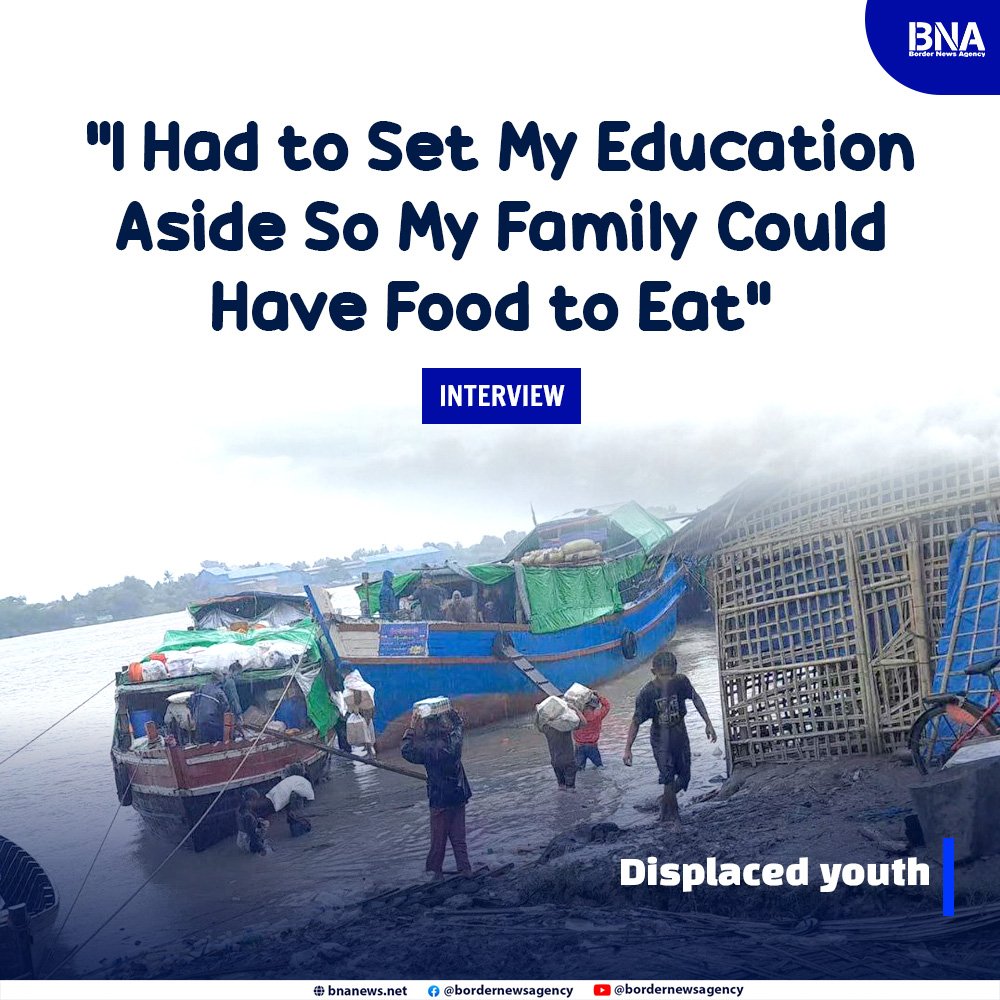Interview
Border News Agency
Kyauktaw, July 7.
Young students among the war-displaced population in Arakan have had to leave school and work to support their families.
These internally displaced people (IDPs) are facing serious hardships in meeting basic needs like food, clothing, and shelter, as they receive little to no international humanitarian assistance.
As a result, displaced students say they are unable to continue their education and are forced to take on any kind of work they can find in order to help their families survive.
A 16-year-old displaced youth who had to drop out of school and work was interviewed by Border News Agency.
“I’m now working at the India port. I sell goods that arrive from India. All the displaced people around here rely on this same type of job. It’s the only way we can afford to eat.”
“My family consists of my younger sister, an older sister, and both of my parents so there are five of us in total, including me.”
“I’m from Sittwe. It’s been over a year about a year and nine months now. It’ll soon be two full years since we arrived here all of us.”
“As for my education, I had to put it on hold because we’re struggling just to survive. At home, I’m the only male, so I have to take responsibility. I’ve been trying hard to keep things going, and my education had to be pushed aside.”
“I still want to continue my education. I miss being with my friends. I used to live freely and independently. But now, I’m struggling alone during this difficult time. I had to set my education aside so my family could have food to eat. Right now, if I don’t work, we don’t eat. That’s why I’m no longer able to go back to school.”
“Some days, I can earn around 30,000 kyats. But there are also days when I go home without making a single penny.”
“Right now, there are more and more laborers working here. It’s because of the struggle to make ends meet. Sometimes three people from one household go out to work whoever is able, goes out and does whatever work they can find.”
“There are people here who used to work in farming. Now, many laborers are losing their jobs. Organizations are also starting to break down. From above, the systems of exploitation are increasing. There are more and more oppressive, controlling systems now that’s what’s happening to the workers here.”
“Right now, due to the weather conditions, labor wages have slightly increased. However, there is a fixed rate for the work. The lower end is around 25,000 kyats per day, especially on days with heavy workloads. On average, though, some days we can earn just over 30,000 or even up to 40,000 kyats.”
“There was a time when I got sick. The money I had saved from work wasn’t enough, and my parents live far away from me. I’m working in one place, and they’re living in another, so it’s difficult. For those of us living and working alone, there’s no one to take care of us, and there are days when we don’t even have money to eat. Sometimes, I can’t afford a single meal. There was no work before, and it’s only now because of the rains that we’re getting work again.”
“I still want to continue my education. I had already planned to finish school. But right now, things aren’t going well. Financially, it’s not manageable that’s why I have to work.”
“I’m working for the sake of my own safety and for my family. But if it were up to me, I would choose to go back to school. Being in school is more joyful. I want to continue my education and be with my circle of friends.”






